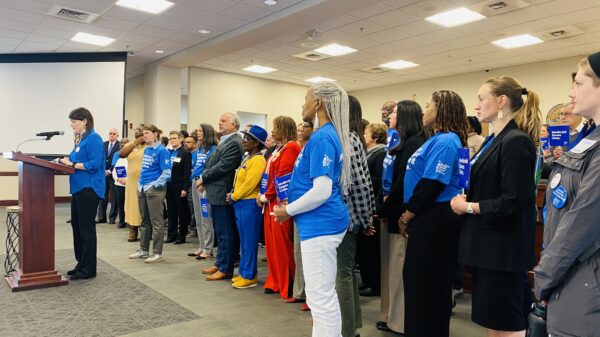By Kimble Forrister
Gov. Robert Bentley is right to urge Alabama to confront rural poverty before he leaves office in 2019. Tens of thousands of families are struggling to make ends meet in rural areas across the state, and better state policies could make a meaningful difference in their lives. Here are seven pragmatic proposals that would help low-income rural families get ahead and build a brighter future for their children.
1. Expand child care subsidies. Lack of affordable child care forces many low-income parents – rural, urban and suburban alike – out of the workforce. It’s urgent that we serve the thousands of families on Alabama’s child care waiting list so their parents can get and keep a job to provide for their children. That also means jobs at the small businesses that provide child care.
2. Restore state funding for rural schools. Alabama still hasn’t restored funding for school buses to the 2008 level, and rural students are the ones who suffer most. The same goes for textbooks and media centers (what we used to call libraries). Our state’s K-12 cuts since 2008 are the nation’s second worst. That’s no way to invest in future prosperity.
3. Concentrate on improving Medicaid. We’re on schedule to restructure the Medicaid program with an array of homegrown regional care organizations on Oct. 1 – but only if lawmakers fund the transition. The new managed care model will offer incentives to expand preventive care and reduce the number of costly emergency room visits. That will save money and keep Alabamians healthier.
4. Close the health coverage gap. Some 185,000 workers in vital fields like construction, child care and food service aren’t paid enough to qualify for tax credits to help buy insurance under the Affordable Care Act. By capitalizing on a federal funding match of $9 for every $1 in state money, Alabama could ensure these workers have the health coverage they need. That will keep workers healthier and more productive, and it will create jobs at rural hospitals and medical offices.
5. Fund the Alabama Housing Trust Fund, which would assist workers whose housing needs aren’t met by other programs. The HTF can help low-income Alabamians pay the rent while still putting food on the table. And the program is particularly well suited to support construction of affordable housing in rural areas. The more rural homes are built, the more work there is for rural homebuilders.
6. Restore balance to our state’s income tax. Alabama has by far the highest income tax for a family of four at the poverty line. Yet we give a huge break to the top 5 percent of earners: They receive more than half of the benefit of the state income tax deduction for federal income taxes. If we ended that lopsided deduction, we could afford to increase the standard deduction and expand the child deduction. That would cut taxes for all families with children – not just those at the top. And it would help the economy, too: Low-income rural families would spend those savings at local businesses.
7. End the state grocery tax. Over a year, the 4 percent savings would be the equivalent of two weeks of free groceries for Alabama families. That would leave rural families with more money to buy food, clothing, transportation and other essentials – and again, that spending would boost the rural economy.
Alabama’s rural families face profound challenges. Far too many are struggling to raise children in a landscape of low incomes and limited opportunities. By taking these seven steps, our state’s leaders can help improve lives and restore hope for young families and rural communities across Alabama.
Kimble Forrister is executive director of Arise Citizens’ Policy Project, a nonprofit, nonpartisan coalition of 150 congregations and organizations promoting public policies to improve the lives of low-income Alabamians. Email: kimble@alarise.org.




















































